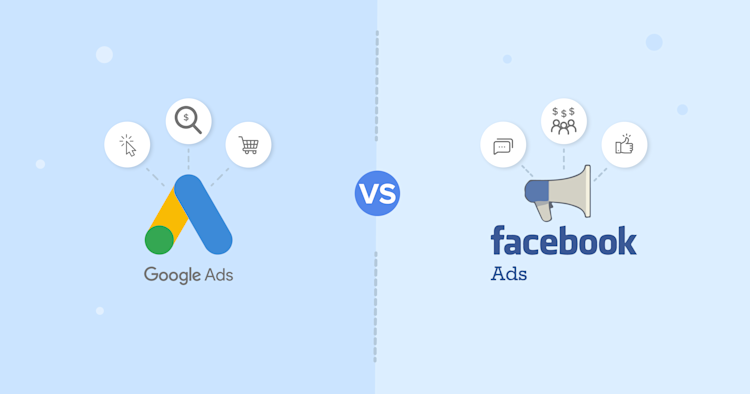Every small business owner ought to be aware of the vast potential of PPC (Pay-Per-Click) management, a powerhouse of a tool that, when used strategically, can bring significant traffic and revenue growth. To understand its potential, let's dive deeper into the concept of small business PPC management and how it can be maximized.
Understanding the Concept of PPC Management
PPC is an online advertising model wherein advertisers pay each time a user clicks on their online ad. These ads pop up when online users input specific search queries into search engines. The system becomes significant in efficiently managing the PPC ad spend of your company on the Google Ads platform for ad campaigns. For small businesses, PPC management services can be a valuable resource in driving growth.
Keywords in PPC Management
In the PPC model, keywords carry immense importance. Advertisers must select a set of keywords relevant to their business, which then triggers their ad to appear. To ensure success in PPC, regular modification, enhancement, and keyword expansion are essential.
Importance of PPC for Small Businesses
The digital marketplace has opened up opportunities for businesses big and small. Yet, small businesses often face fierce competition and budget limitations. This is exactly where PPC steps in.
High Targeting Capability
PPC enables small businesses to show their ads to a targeted audience. With PPC, not only can you target audiences geographically, but you can even schedule your ad to appear at specific times to maximize results.
Measurable Results
Unlike traditional methods, it's easier to measure the success and failure of PPC ads. You can decipher the number of times the ad was viewed, clicked, leads gathered, etc., and calculate the return on investment (ROI).
Ensures Brand Visibility
PPC aids in increasing the visibility of your brand. Even when users don't click on your ad, they still see your brand, tagline, key products, or offerings, helping in creating brand awareness.
Steps for Effective Small Business PPC Management
As beneficial as it is, managing PPC can be quite a task. Here's a step-by-step guide to ease the process.
Identifying and Setting Goals: The first step pertains to identifying the goals of your PPC campaign. Be clear about what you want to achieve, whether it's brand visibility, lead generation, or online sales.
Researching Keywords: Finding and selecting the right keywords make the foundation of any successful PPC campaign. Using tools like Google keyword planner can provide insights into the most effective keywords for your campaign.
Creating Engaging Ad-copy: Your ad copy should capture attention, be exciting, and relevant. Play with words and create copies that set you apart from fellow competitors.
Optimizing Landing Pages: A click on your ad should take users to an optimized landing page. This page should succinctly convey what you are offering and make it easy for users to convert.
Regular Tracking and Optimization: This involves routinely analyzing the performance of your PPC campaign and making necessary adjustments to enhance efficiency.
Hiring PPC Management Services
Hiring an expert for managing your PPC campaign could be resourceful. They come with expertise, saving you time and ensuring your ad campaigns run smoothly and deliver rewarding results.
Frequently Asked Questions about Small Business Ppc Management
Why does my Small Business need PPC Management?
Small business PPC management is crucial because it can help your business get noticed by your target audience promptly. It also increases the chances of conversion, as potential customers who see your ads are already interested in your kind of products or services. A well-managed PPC campaign can increase your return on investment (ROI) as you will reach the audience who are relevant to your business.
How does Small Business PPC Management work?
In small business PPC management, once an online ad is clicked by users, it directs them to your website, and you pay a small charge to the search engine. You are essentially buying visits to your site. A properly managed PPC campaign involves researching and selecting the right keywords, organizing those keywords into well-planned campaigns and ad groups, and setting up PPC landing pages optimized for conversions.
What are the elements of successful Small Business PPC Management?
Firstly, small businesses need to carry out extensive research on keywords that they should bid on, ensuring they are relevant to their business. Secondly, the structure of the PPC ad campaigns and ad groups should be well organized. Thirdly, they need to build relevant, high-quality landing pages that are directed towards your target audience. Lastly, regular monitoring and adjusting of campaigns based on performance metrics is also a crucial element.
How much does Small Business PPC Management generally cost?
The cost of small business PPC management can vary significantly depending on different variables such as the competitiveness of your industry, the keywords you're bidding on, and the bidding strategy you choose. Additionally, you might also need to account for the costs of hiring a PPC management agency, which typically charges a monthly fee for their services.
What platforms are most commonly utilized in Small Business PPC Management?
Two of the most popular platforms used in small business PPC management are Google Ads and Bing Ads. Google Ads is the largest pay-per-click platform and is ideal for its massive reach and powerful targeting options. Bing Ads, although smaller, offers a less competitive market and also provides a substantial reach with its target audience.
How is success measured in Small Business PPC Management?
Success in small business PPC management is typically measured by various key performance indicators (KPIs), including click-through rates (CTR), cost per click (CPC), conversion rates, and ROI.
What is the role of a Small Business PPC Manager?
A small business PPC Manager usually helps businesses manage their PPC ad campaigns. This includes tasks such as keyword research, creating ad groups, setting up campaigns, managing ads budgets, tracking KPIs, and optimizing the PPC campaigns based on performance.
Pros of Small Business PPC Management
Affordable Budgeting
One of the significant advantages of Pay-Per-Click (PPC) management for small businesses is the ability to budget effectively. You can set a daily or monthly limit on your PPC advertising, ensuring that you don't go over the amount of money you are willing to spend on the campaign.
Instant Results
Another pro of PPC for small businesses is the immediate results. Unlike Search Engine Optimization (SEO), which can take months to start showing results, PPC can provide instant traffic. You can start seeing gains in website visitors, leads, and customers as soon as your ads go live.
Targeted Advertising
PPC allows small businesses to focus on a specific group of customers. This includes age, location, and interests. The high level of customizations ensures your ads reach people who are most likely to need your products or services.
Easy Measurability and Trackability
With PPC, small businesses can easily track and measure the success of their campaigns. Platforms like Google AdWords provide detailed reports on the number of impressions, clicks, and conversions, providing businesses with the insight they need to adjust their strategy.
Cons of Small Business PPC Management
Requires Expert Knowledge
Managing a successful PPC campaign requires a deep understanding of keyword research, consumer behavior, and digital marketing. If you don't possess this knowledge, it can be costly as you will either have to spend time learning or hire an expert to manage your campaigns.
Time-Consuming
PPC campaigns require regular tweaks and adjustments to remain competitive and effective, making it a time-consuming task for small businesses. You must keep an eye on budget management, keyword optimization, and performance metrics to ensure your campaign runs optimally.
High Competition
Small businesses might find themselves competing with larger organizations with significantly more resources in PPC space. These bigger competitors can afford to pay more for popular keywords, making it difficult for small businesses to rank high for these keywords.
Quick to Spend
Although you can set budget limits, PPC can become costly if you don't manage it correctly. If your ads are not well-optimized, you may not generate enough conversions to justify your spending, leading to wasted advertising dollars.
Difficulty in Sustaining Results
The results of PPC campaigns are hard to sustain without continuous ad expenditure. Unlike SEO, where your organic ranking can remain for an extended period, your visibility with PPC ends when your ad budget runs out.
Pro & Con: Depending on Experience Level, It's DIY
Pro
In theory, small businesses can manage their own PPC campaigns. This can save money in terms of outsourcing and allows complete control over every aspect of the campaign.
Con
However, managing a successful PPC campaign requires a deep understanding of digital advertising. Mistakes and gaps in knowledge can lead to wasted ad spends and weak ROI. Plus, time spent managing PPC can detract from other important business tasks.
In conclusion, PPC management can offer instant results, target specific customers, and is easy to measure and track, but requires expert knowledge, is time-consuming, and may lead to costly mistakes if not managed correctly. Depending on the experience level, small businesses can manage their own PPC campaigns, but this can also distract from other business tasks.
Summary
When it comes to improving your small business operations, Small Business PPC Management can make a huge difference. With a well-structured, strategic PPC campaign, you give your enterprise the potential to reach new audiences, driving leads and boosting sales at a pace much faster than most traditional marketing tactics. It’s a cost-effective approach that allows you to set a budget that suits your financial capabilities, making it accessible and beneficial for businesses of any size.
Remember, Small Business PPC Management is more than just launching a campaign; it's about monitoring, adjusting, and improving your strategy over time. Using analytic tools, you can gather valuable data about your target audience - everything from when they're most active online to what kind of content they respond to best. This enables you to serve your ads to the right people at just the right time, optimizing your ROI.
In the dynamic landscape of digital marketing, Small Business PPC Management offers a competitive edge. Interestingly, though PPC management might seem overwhelming at first glance, with a bit of time and the right guidance, it’s something you can master. Investing in effective PPC management can directly contribute to your business's growth and success - and that's something to get excited about.
About WebPerfex
WebPerfex is a quirky, tech-savvy bunch based in the bustling city of Sacramento, CA. We're a powerhouse of digital strategists, creative designers, and coding ninjas who live and breathe all things web. Injecting our unique brand of innovation into every project, we offer top-grade SEO, website design, graphic design, online marketing and branding services. Honestly, we're more than just a company. We're a band of web enthusiasts out to revolutionize the digital landscape in California's capital city. With a sprinkling of zesty creativity and a good dash of technical wizardry, we're the secret ingredient your online platform needs to soar. Basically, we love what we do even more than we love our coffee (and that says a lot!). Welcome to WebPerfex - where brilliance meets the web.




